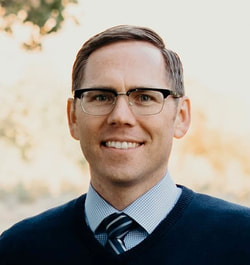 Recently Facebook announced that it's acquiring WhatsApp, a small tech company with a little more than 50 employees and barely making $300 Million in revenues for...drumroll...$19 Billion. The sum is only 13 times Facebook’s entire 2013 net income and more than twice Facebook’s 2013 gross revenues. But what does Facebook's acquisition have to do with the Cooperative Extension System? There happens to be a leadership lesson we can learn here: Move fast to avoid irrelevancy. Irrelevancy happens fast. While it's insanely true in technology, it's also true in any industry. Blackberry. Motorola. Dell. HP. Circuit City. Best Buy. Sears. JCPenney. Blockbuster. Borders. Abercrombie and Fitch. All these large corporations lost relevancy in a matter of months and they're either gone or still struggling.
Long ago Extension was in the leader, an innovative system. Over time, it lost its luster. Irrelevancy didn't happen fast enough, it crept up slowly and now here we are in 2014: entitled, slow, and struggling to be relevant. Our impacts are amazing and we're still making breakthroughs. But why don;t more people know we exist? Now, we get to decide how Extension will compete? This acquisition proves Facebook's leadership understands that the company is not immune to changing market trends. Facebook has been the social media standard since 2006. But communication has altered the use and impact of things like images, photos, charts and text--all of which have the probable impact of slowly eroding the value of Facebook. How are you responding to market trends? Are you focused on starting new programs in an attempt to leverage trends or are you forming partnerships? Over the last few years, Facebook's leaders decided to not only work on making the platform more mobile friendly, but developed Facebook’s own platform apps for photos, messaging and a variety of new features. However, and this is key, external companies did a better job. Just a couple years ago Instagram surfaced as a leader in image sharing and now WhatsApp has developed a better solution to messaging. Are their other organizations reaching your community and meeting their needs better than you? Google sure is. Did Facebook fail? Is Extension failing? Unfortunately, leaders have been trained for many years to respond by saying, “We need to find a way to win!” Then they look inside for the answer; taking action to defend and extend their market position even though the market is shifting and trends are developing externally from the organization. What leaders need to realize is that often times answers come from the market, not internal efforts. How should Extension compete? As 21st century leaders, we cannot ignore or downplay market trends and/or trivialize competition. We live in a highly interconnected, fast-paced, globally competitive marketplace. Clients go where they want...quickly...often leaving the early (or long time) leader scratching its head, wondering how it lost so much market position and value so fast. Facebook's leadership thought outside the box. Rather than ignoring trends in its effort to defend and extend its early lead, they reached out and brought the leader to them. $1 Billion for Instagram was a huge investment, but it kept Facebook relevant in mobile platforms and imaging. By acquiring WhatsApp, Facebook remains relevant as the market shifts rather than losing out to a competitor. New technologies, consumer behavior, regulations, inventions, and innovations are constantly challenging old formulas for success. Facebook's leadership lesson for staying relevant is: Recognize the market shift. Accept it. If there is a better solution, rush toward it rather than ignoring it. Bring it into the organization, and leave it independent while taking time to discover synergy. While Extension can't simply take over the Maker Movement, convince Google to create extension.google.com (similar to scholar.google.com), or spend billions acquiring Skillshare or Lynda, we can all better invest in eXtension.org and contribute to these (and other) relevant platforms and communities, form deep partnerships and be knowledge leaders again.
1 Comment
Kevin Gamble
3/19/2014 12:07:15 pm
Obscurity is going to require a serious strategy. We already know that if we build it they (the people) won't come. We need for Extension to return to its roots and adopt a Seaman Knapp like strategy for the 21st Century. The communities we need to interact with already exist. We need to go to them, as they will never come to us.
Reply
Leave a Reply. |
Paul Hill, Ph.D.I design, plan, and evaluate economic development programs for Utah State University. Archives
September 2022
Search this site:
|

 RSS Feed
RSS Feed
